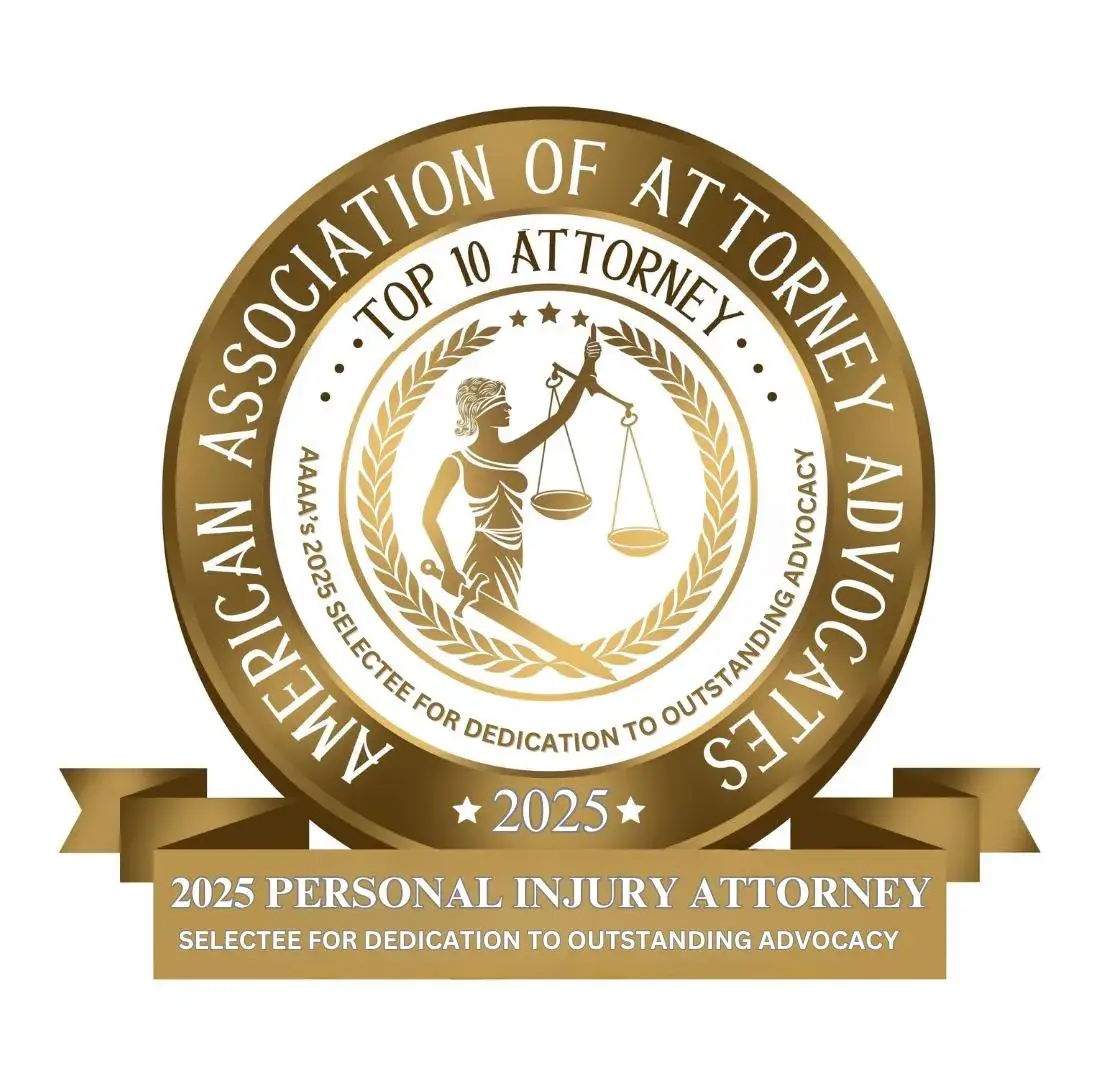
Do All Workers’ Comp Cases End in a Settlement?
No, not all workers’ compensation cases end in a settlement, but many do. Settlements can offer injured workers a quicker resolution and financial relief, but every case is unique. Whether your workers’ compensation claim settles or not will depend on various factors, including the nature of your injury, the willingness of the insurance company to negotiate, and your own goals and needs as an injured worker.
Understanding how the process works can help you make informed decisions and focus on what matters most, your recovery and future.
What Is a Workers’ Comp Settlement?
A workers’ compensation settlement is an agreement between you (the injured worker), and your employer’s workers’ compensation insurer. Through this agreement, you typically accept a one-time payment (or structured payouts over time) in exchange for closing your claim. Settlements often include compensation for lost wages, medical bills, and sometimes future anticipated medical costs related to your injury. Essentially, it’s a way to resolve your workers’ comp case without continuing disputes or prolonged litigation.
While settlements sound straightforward, they are anything but simple. Reaching a settlement requires careful negotiation and a full understanding of what your injury has cost you, not just now, but for the rest of your life. This is why bringing in professional guidance during this process can make a significant difference in the long run.
Read More: The Many Myths of Workers’ Compensation
Why Do Many Workers’ Comp Cases Settle?
One of the main reasons workers’ comp cases often settle is that it can benefit all parties involved. For injured workers, a settlement may provide faster financial relief and eliminate the uncertainty of waiting for a decision from a workers’ compensation hearing or court. On the other hand, insurance companies are often eager to settle because it allows them to limit their liability and avoid ongoing obligations like paying for extended medical care or wage replacement.
Settling is, in many ways, a compromise. While it may not provide the full amount you hoped for, it can give you a sense of closure, allowing you to avoid the stress of an ongoing legal battle and focus entirely on healing. However, a settlement also comes with risks, such as waiving the right to request additional benefits in the future. This is why taking time to understand your options is essential.
Not Every Case Leads to Settlement
Although many workers’ compensation claims end with a settlement, it’s important to remember that not all of them do. Here are a few reasons why:
- Disputed Claims
If the insurance company disputes your claim, it could take months or even years before you reach any resolution, if at all. Insurers might argue that your injury wasn’t work-related, that your medical treatment was unnecessary, or that your condition wasn’t as serious as you claim. When disputes arise, both parties may dig in their heels, making negotiation difficult. - Ongoing Medical Treatment
If your medical treatment is still ongoing, it might not be in your best interest to settle your case. A settlement typically closes your right to continued benefits, meaning you could be left paying out-of-pocket for future treatments. For people with serious or long-term injuries, this uncertainty can make settling a risky choice. - Employer or Insurance Company Refusals
Sometimes, the employer’s workers’ comp insurer may refuse to settle your claim, especially if they believe they have a strong chance of winning in court or reducing the value of your claim over time. Sadly, this tactic can leave injured workers in a difficult position as they wait for resolution. - Preferring to Go to Trial
While this isn’t common, some workers choose to pursue their case through court proceedings rather than settle. This might happen if the offered settlement feels unfair or inadequate. A trial, however, comes with risk, as there’s no guarantee of winning. Still, for some injured workers, fighting for maximum compensation in court feels like the best path forward.
How Does the Workers’ Comp Process Begin?
When you’re injured on the job, your first step is typically to inform your employer as soon as possible. This might involve submitting a written report documenting your injury or making a verbal report to your supervisor. From there, your employer is usually responsible for filing a claim with their workers’ compensation insurance provider.
The claim is then evaluated by the insurer. They’ll review your medical records, accident reports, and other evidence to determine the validity of your case. If your claim is approved, you’ll begin receiving benefits, such as compensation for lost wages and medical costs. During this process, settlement negotiations might arise, especially if your injury appears serious or long-term.
However, if your claim is denied, you have options. Many workers who face claim denials request formal hearings or file appeals. This can seem challenging, but it’s an opportunity to present more evidence and argue your case, whether for benefits or a potential settlement.
Factors That Influence a Settlement Offer
When a settlement offer comes into play, it’s important to understand that the amount you’re offered isn’t random. Several factors influence the value of a workers’ comp settlement, such as:
- Your Injury’s Severity
More severe injuries often result in higher settlements. If you’re unable to return to work or you’ve experienced permanent disability, the settlement amount should factor in your long-term financial and medical needs. - Medical Costs
The insurer will consider the costs of any current and future medical treatment for your injury, including surgeries, rehabilitation, medications, and specialized therapies. - Lost Income
If your injury has affected your ability to work, either temporarily or permanently, your settlement may include compensation for lost income or diminished earning capacity. - Disability Ratings
A disability rating, determined by a medical professional, is often a big factor in settlement negotiations. A higher rating typically reflects a greater loss of function and higher lifetime costs. - State Laws
Workers’ comp laws vary by state, and these rules outline what benefits you’re entitled to and what limits are placed on settlements. It’s crucial to understand your rights under New York or New Jersey law, depending on your location.
What Can You Expect During Settlement Negotiations?
Settlement negotiations typically begin with an offer from the insurance company. This offer may be based on their calculations of what your injury is “worth.” Unfortunately, insurers often aim to minimize payouts, so their initial offer might not reflect the full impact of your injury. This is why evaluating the offer carefully is crucial.
During negotiations, you might propose a counteroffer that includes more accurate estimates of your medical expenses or future care. If both parties can agree on terms, the settlement is finalized, and you’ll typically receive the payment in one lump sum or installments. If an agreement can’t be reached, the case may proceed to mediation, arbitration, or even a full trial.
It’s worth pointing out that negotiations can be emotional, especially if you’re facing significant medical challenges or financial strain. Patience and a clear understanding of your rights play vital roles in this process.
Steps to Reaching a Workers’ Comp Settlement
If your case results in a settlement, it’s essential to understand how that process unfolds. Each step is designed to ensure that you, as the injured worker, are fairly compensated for your losses. While this path may feel daunting, breaking it into steps can help clarify what lies ahead.
Step 1: Filing the Initial Workers’ Compensation Claim
The settlement process begins with reporting your injury to your employer. Most states have strict deadlines for doing this, so it’s crucial to act quickly. Once you report your injury, your employer should guide you on filing a formal workers’ comp claim. This claim becomes the foundation for any potential settlement discussions.
At this early stage, make sure to document everything. Keep records of medical visits, communication with your employer, and any expenses related to your injury. These details will become valuable if there’s any dispute about your benefits.
Step 2: Medical Assessments and Treatment
After filing your claim, you’ll likely need to see a designated doctor for an evaluation. The doctor’s report plays a key role in determining the severity of your injury and what kind of treatment you’ll need. These medical evaluations are critical, as they influence how much compensation you may be entitled to receive.
It’s important to prioritize your health during this stage. Follow your doctor’s recommendations and keep track of your recovery. Don’t hesitate to seek a second opinion if you feel the initial assessment doesn’t reflect the true extent of your injuries.
Step 3: Benefit Payments Begin (or Are Denied)
After your claim is processed, you may start receiving workers’ compensation benefits. These payments are meant to cover medical expenses and some portion of your lost wages. However, sometimes claims are denied, or the benefits provided may not feel sufficient to address your needs. If this happens, it may be time to explore legal options and consider pursuing a settlement.
Step 4: Negotiating a Settlement Agreement
Once the extent of your injury and your future needs are clear, you or your attorney can begin negotiating a settlement with the insurance company. Settlement agreements often include compensation for:
- Medical expenses: Both current and future treatment related to your workplace injury.
- Lost income: Wages you’ve missed due to your inability to work.
- Permanent disability: If your injury has caused long-term or permanent impairment.
Insurance companies may offer a lump sum payment or structured payments over time. While a quick resolution can be appealing, it’s vital to ensure the settlement covers all your current and future needs. Settling for less may leave you struggling to pay bills down the road.
Step 5: Reviewing and Finalizing the Settlement
Before your settlement is finalized, it typically must be approved by a workers’ compensation judge or a governing body. This step ensures the agreement is fair and you fully understand the terms. Once the settlement is approved, it becomes legally binding.
Keep in mind that accepting a settlement usually means giving up your rights to future claims related to the same injury. That’s why careful consideration and, ideally, professional guidance are crucial during this stage.
The Role of Legal Representation in Workers’ Comp Cases
While it’s possible to handle a workers’ compensation case on your own, having experienced legal representation can make a world of difference. Here’s how an attorney can help you throughout the process:
- Understanding Your Rights
Workers’ compensation laws can be complex and vary by state. A lawyer can explain your rights and ensure you’re fully aware of the benefits you’re entitled to receive. This knowledge alone can prevent you from settling for less than you deserve.
- Gathering Evidence
An experienced attorney knows how to build a strong case. They can gather medical records, witness statements, and other evidence that supports your claim. This thorough approach can be particularly helpful if your benefits are disputed or denied.
- Handling Negotiations
Dealing with insurance companies can be intimidating, especially when you’re recovering from an injury. A lawyer can take over these negotiations, protecting you from lowball offers and ensuring your best interests are represented.
- Guiding You Through Legal Proceedings
If your case cannot be resolved through negotiation, it may go to a hearing or trial. An attorney can prepare you for this process, represent you in court, and fight for the outcome you deserve.
How Workers’ Comp Settlements Are Finalized
Once you and the insurance company reach an agreement, the settlement process enters its final stages. Here’s what happens next:
- Approval by a Judge
Most states require workers’ comp settlements to be approved by a judge. This approval process ensures the agreement is fair and lawful. During this hearing, the judge will review the terms and ask if you fully understand the settlement. It’s a safeguard designed to protect you from feeling pressured or rushed into an agreement.
- Receiving Your Compensation
After the settlement is approved, you’ll receive your payment as outlined in the agreement. If you’ve opted for a lump sum, you’ll receive the entire amount at once. If you choose structured payments, those will begin according to the agreed schedule.
- Moving Forward After Settlement
Accepting a settlement doesn’t mean the end of your recovery or challenges. It’s important to use your compensation wisely, especially if it’s meant to cover long-term medical care or living expenses. You may also want to seek financial planning advice to ensure your settlement provides the security you need.
Why Professional Guidance Matters
Workers’ compensation laws are designed to help injured workers, but the system can be complicated. Having the right support can make all the difference in securing the benefits you need.
That’s where the team at Maggiano, DiGirolamo & Lizzi, P.C. comes in. With decades of experience and a commitment to justice, we help injured workers like you. Whether you’re just starting your claim or exploring the possibility of a settlement, our caring and knowledgeable attorneys can guide you every step of the way.
Contact Maggiano, DiGirolamo & Lizzi, P.C. today at (201) 585-9111 or through our online form to learn more about your options during a free case consultation. They’re here to ensure you’re treated fairly and that your voice is heard.



















